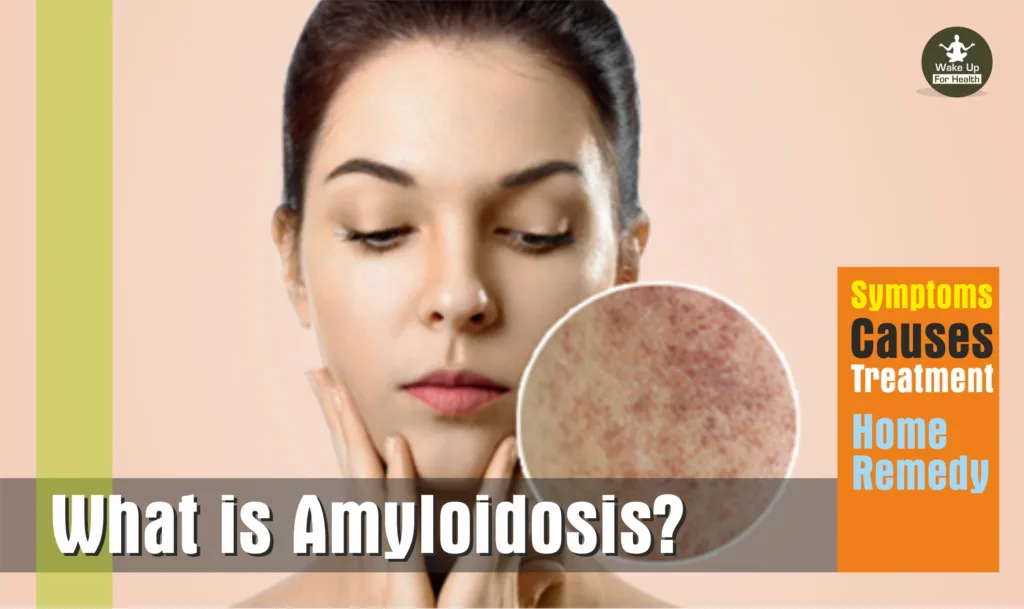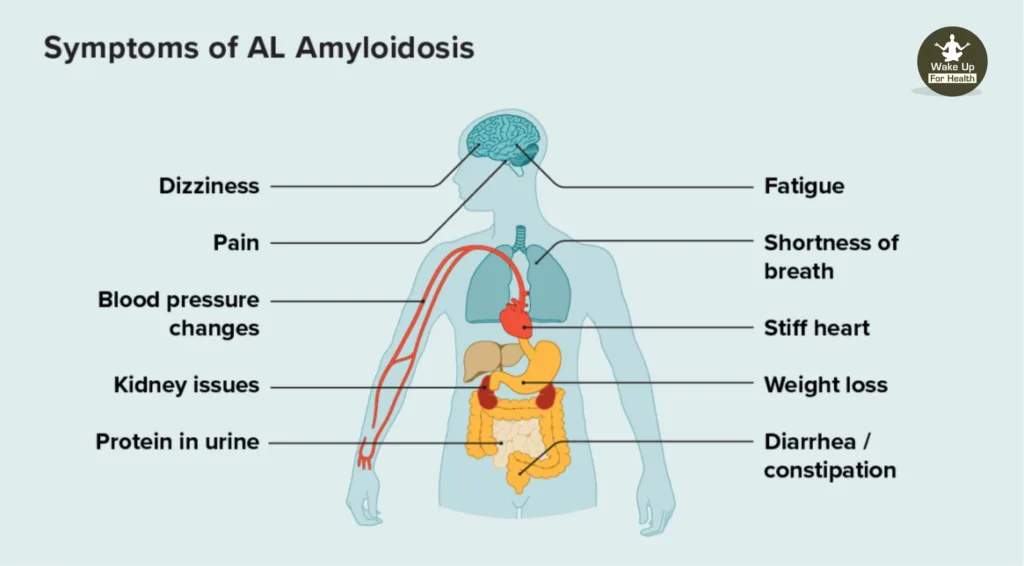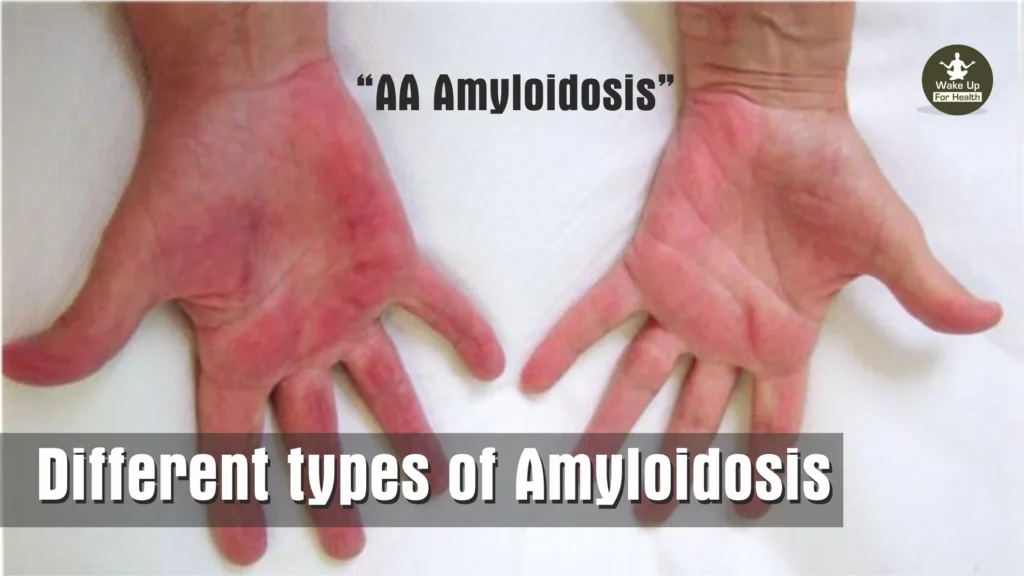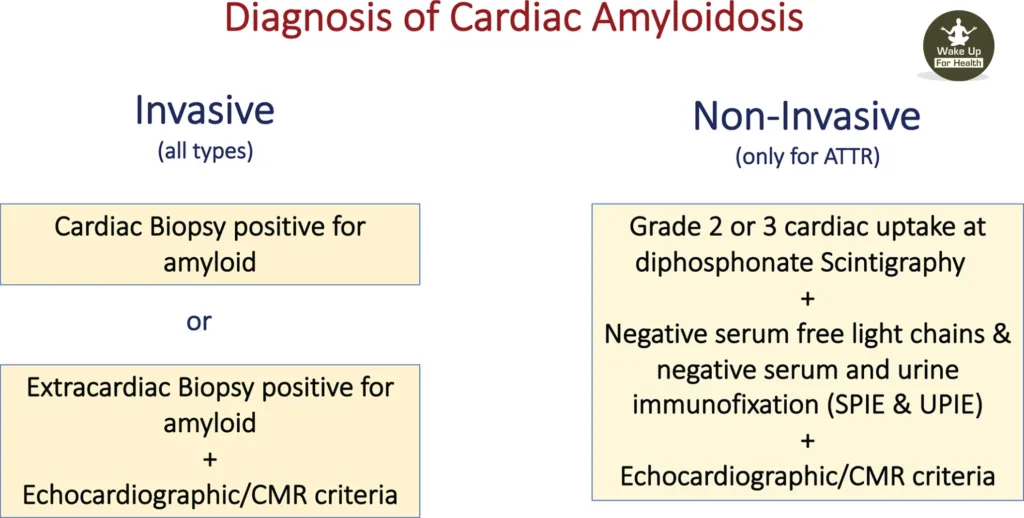Many types of diseases can engulf a person, in which some diseases are common and some are rare and complex. Generally, if the disease is common and not complicated, then it can be treated easily and the patient can lead a normal life as well. But if a person gets a rare disease, then due to that there is a danger even to the death of the person.
Amyloidosis is one such disease which is quite rare and that is why people do not know much about it. Apart from the rareness of this disease, less information about it also makes it more dangerous. Through this article, you can know in detail about amyloidosis. In the article you can get complete information about amyloidosis symptoms, causes of amyloidosis and most important amyloidosis treatment.

What is Amyloidosis?, Dealing with Amyloidosis
When an aberrant protein called amyloid accumulates in your organs and interferes with their normal function, a rare condition known as amyloidosis results. Amyloid is not normally found in the body, but it can be found in many Can be made from different types of proteins. Patients with amyloidosis are more likely to be affected by heart, kidney, liver, spleen, nervous system, and digestive system. Some types of amyloidosis occur in association with other diseases.
These types may improve with treatment of the underlying disease. Some varieties of amyloidosis can be life-threatening and cause organ failure.
What are the Symptoms of Amyloidosis?, Symptom Analysis, Treatment Methods

You may not experience signs and symptoms of amyloidosis until the condition has advanced. When signs and symptoms appear, they depend on which part of your body is affected. Amyloidosis may include the following signs and symptoms:
1. Swelling of the patient’s ankles and feet
2. Severe fatigue and weakness
3. Shortness of breath with minimal exertion
4. Unable to lie flat on the bed due to shortness of breath
5. Numbness, tingling or pain in the patient’s hands or feet, especially in your wrists (carpal tunnel syndrome)
6. Diarrhea, possibly with blood, or moderate to severe constipation
7. Weight loss of about five kilograms or more without effort and suddenly
8. Enlarged tongue, which sometimes looks wavy around its edge
9. Skin changes, such as thickening or bruising easily, and purple spots around the eyes
10. An irregular heartbeat (this can lead to heart problems)
11. Difficulty swallowing
Read Also : Leukoderma or Vitiligo : Causes, Home Remedies and Best Treatment
What are the Causes of Amyloidosis?
There are many different types of amyloidosis, and each type has a different cause. Some varieties are hereditary and others are caused by external factors, such as inflammatory diseases or prolonged dialysis. Many types affect multiple organs, while others affect only one part of the body.
What are the Types of Amyloidosis?
Our bodies can accumulate amyloid, a number of different proteins, but only a few have been linked to major health problems. What kind of amyloidosis you have depends on the type of protein and where it accumulates. Amyloid deposits can build up all over your body or in just one area.
Different types of Amyloidosis include:
1. AL Amyloidosis (Immunoglobulin Light Chain Amyloidosis)
This is the most common type and is called primary amyloidosis. The illness is caused by a kind of protein called amyloid light chain, or AL. There is no known cause, but it occurs when your bone marrow makes abnormal antibodies that cannot be broken down. It is connected to multiple myeloma, a kind of blood cancer. Your kidneys, heart, liver, intestines, and nerves may all be impacted.
2. AA Amyloidosis

This syndrome, formerly known as secondary amyloidosis, is brought on by another chronic inflammatory or infectious illness such rheumatoid arthritis, Crohn’s disease, or ulcerative colitis. Although it mostly affects the kidneys, it can also have an impact on the heart, liver, and digestive tract. AA stands for amyloid type A. The protein causes this type.
Parkinson’s Disease : Symptoms, Treatment and Diet
3. Dialysis-related Amyloidosis (DRA)
People who have received dialysis for more than five years and older folks are more likely to experience it. This form of amyloidosis is caused by a build-up of beta-2 microglobulin in the blood. Although deposits can develop in a variety of tissues, they most frequently impact the tendons, joints, and bones.
4. Familial, or Hereditary Amyloidosis
It is a rare form passed down through families. The liver, nerves, heart, and kidneys are frequently impacted. Several genetic defects are associated with a higher likelihood of amyloid disease. For example, abnormal proteins such as transthyretin (TTR) may be the cause.
5. Age-Related (Senile) Systemic Amyloidosis
This is due to accumulation of normal TTR in the heart and other tissues. It mostly occurs in older men.
6. Organ-Specific Amyloidosis
It causes deposits of amyloid protein in single organs including the skin (cutaneous amyloidosis).
Although some types of amyloidosis have been linked to Alzheimer’s disease, the brain is rarely affected by amyloidosis that occurs throughout your body.
What Complication Can Occur from Amyloidosis?
Possible complications of amyloidosis depend on which organs the amyloid deposits affect. Amyloidosis can seriously harm you :
1. Cardiac (Heart) Amyloidosis
Amyloid deposits in the heart can cause hardening of the walls of the heart muscle. They can also make the heart muscle weaker and affect the heart’s electrical rhythm. This condition can cause less blood to flow to your heart.
Your heart will eventually lose its ability to pump regularly. If you have heart-related amyloidosis, you might:
- Shortness of breath with mild activity
- An Irregular Heartbeat
- Symptoms of heart failure, which include swelling in the feet and ankles, weakness, fatigue, and nausea, among others
2. Kidney Amyloidosis
Your kidneys filter waste and toxins from your blood. Amyloid deposits in the kidneys make it difficult for them to do this job. When your kidneys don’t function properly, water and dangerous toxins accumulate in your body. If you have renal amyloidosis, you could have:
- Symptoms of kidney failure, which include swelling in the feet and ankles and puffiness around the eyes
- High levels of protein in your urine
3. Gastrointestinal Amyloidosis
Amyloid deposits along your gastrointestinal (GI) tract slow the movement of food through your intestines. This hinders digestion. If you have GI tract amyloidosis, you could have:
- Decreased appetite
- Diarrhea
- Nausea
- Stomach pain
- Weight Loss
If your liver is affected, it can lead to an enlargement of the liver and a build-up of fluid in the body.
4. Amyloid Neuropathy
Amyloid deposits can damage the nerves outside your brain and spinal cord, called peripheral nerves. Peripheral nerves carry information between your brain and spinal cord and the rest of your body. For example, if you burn your hand or stub your toe, they make your brain perceive pain. If amyloidosis affects your nerves, you may have:
- Balance problem
- Problems controlling your bladder and bowels
- Sweating problem
- Tingling and weakness
- Dizziness on standing up due to a problem with your body’s ability to control blood pressure
5. Nervous System
You may experience pain, numbness or tingling in your fingers or numbness, loss of feeling or a burning sensation in your toes or the soles of your feet. If amyloid affects the nerves that control your bowel function, you may experience alternating constipation and diarrhea. If it affects the nerves that control blood pressure, you may feel faint after standing up too quickly.
OMG – HALITOSIS (Bad Breath) – Symptoms & Treatment
How is Amyloidosis Diagnosed?

Amyloidosis is often overlooked because the signs and symptoms can mimic those of more common diseases.
Early diagnosis can help prevent further organ damage. Accurate diagnosis is important because treatment varies greatly depending on your specific condition.
1. Laboratory Tests
Your blood and urine may be analyzed for abnormal proteins that may indicate amyloidosis. Depending on your signs and symptoms, you may also have thyroid and liver function tests.
2. Biopsy
A tissue sample may be taken and checked for signs of amyloidosis. A biopsy may be taken from fat under the skin in your abdomen (fat aspirate), bone marrow, or an affected organ, such as your liver or kidney. Special examination of the tissue can help determine the type of amyloid deposit.
3. Imaging Tests
The degree of your condition can be determined using images of the organs that are impacted by amyloidosis. Tests may include:
- Echocardiogram : This technique uses sound waves to create moving images that can show how well your heart is working. It may also show heart damage that may be specific to certain types of amyloidosis.
- Magnetic resonance imaging (MRI) : MRI uses radio waves and a strong magnetic field to create detailed images of the organs and tissues in your body. These can be used to assess the structure and function of your heart.
- Nuclear Imaging : In this test, a small amount of radioactive material (tracer) is injected into a vein. This may reveal early heart damage caused by some types of amyloidosis. It may also help to differentiate between different types of amyloidosis, which may guide treatment decisions.
What is the Treatment for Amyloidosis?
There is no cure for amyloidosis. But treatment can help manage the signs and symptoms and limit further production of amyloid proteins. If amyloidosis is triggered by another condition, such as rheumatoid arthritis or tuberculosis, treating the underlying condition may be helpful.
Medications :
1. Chemotherapy
Many of the drugs used to treat certain forms of cancer are used in AL amyloidosis to stop the growth of abnormal cells that produce proteins that cause amyloid to form.
2. Heart Medications
If your heart is affected, your doctor may suggest blood thinners to reduce the risk of clots and medicines to control your heart rate. You may also need to limit your salt intake and take medicines that increase urination, which can reduce the strain on your heart and kidneys.
3. Targeted Therapies
For some types of amyloidosis, drugs such as patisiran (Onpetro) and inotersen (Tegesedi) can interfere with the commands sent by faulty genes that make amyloid. Other drugs, such as tafamidis (Vyndamax, Vyndaquel) and diflunisal (diflunisal), can stabilize bits of protein in the bloodstream and prevent them from turning into amyloid deposits.
Home Remedies for Amyloidosis.
If you have amyloidosis, your doctor will prescribe a diet that is light and easy to digest. Along with this, will give salad to drink enough water. You will be asked to use compression stockings to reduce swelling in the arms and legs. Along with this, the symptoms of this disease can be reduced by changing your lifestyle and diet. You should take the following diet:
• Porridge
• Soup
• Juice
• Oats
In this regard, you should contact your doctor. Because doctors can tell you the treatment only after seeing your health condition. You can contact the doctor for more information on this subject.
(Disclaimer: This article is for general information only. It is just to wake you up for your health purpose. Out intension is not to mislead or It cannot in any way be a substitute for any medicine or treatment. Always contact your doctor for more details.)
2 thoughts on “Amyloidosis Disease: Symptoms, Causes, Treatment and Home Remedy”